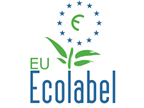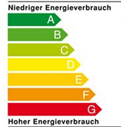Ban on generic environmental claims – greenwashing
System: Directive (EU) 2024/825, aimed at preventing so-called ‘greenwashing’ commercial practices, as well as misleading labelling in relation to sustainability – for example, in brand names and/or company names, was published on 6 March 2024 and entered into force on 26 March 2024. Known as the EmpCo Directive, following transposition into national law, it will apply to companies in the EU from 27 September 2026. It contains, among other things, a ban on any generic environmental claims for which the trader is not able to demonstrate recognised excellent environmental performance that is also relevant to the claim. It is easier to understand the New Directive (EU) 2024/825 (EmpCo Directive) when it is placed in the context of the EU’s overall environmental legislation.
– The Green Deal: The Green Deal is the European Union’s set of proposals by which it aims to become climate neutral by 2050. The programme covers areas such as greenhouse gas emissions, energy efficiency, renewable energy, sustainable agriculture and the circular economy.
Consumers are an important factor in this plan. The provision of clear, relevant and reliable information on the sustainability of products and companies should enable them to make informed purchasing decisions.
– The EmpCo Directive: Directive (EU) 2024/825 (EmpCo Directive), to prevent ‘greenwashing’ and the use of misleading labelling in terms of sustainability serves the above purpose and is the primary element of the Green Deal’s consumer-centric approach. The aim of the directive is to protect consumers from unfair greenwashing commercial practices. Its full title is the directive on ‘Empowering consumers for the green transition through better protection against unfair practices and through better information’.
– The Green Claims Directive. The second step in this consumer-centred approach will be the more specific Green Claims Directive. This does not relate to commercial practices, but to voluntary explicit environmental claims. Essentially, it regulates the minimum requirements for environmental claims, reporting obligations and verification tools. The Green Claims Directive will supplement the EmpCo Directive.
Ban on generic environmental claims without proof of performance
The EmpCo Directive bans the unfair commercial practice of making ‘generic environmental claims in the absence of recognised excellent environmental performance’. Generic environmental claims will be prohibited if the trader is not able to demonstrate such recognised excellent environmental performance that is also relevant to the claim. This will often be difficult to prove given that recognised environmental excellence means environmental performance that is in line with recognised European, national or regional environmental labelling schemes. An example of such a benchmark is the official voluntary EU Ecolabel, introduced in 1992 and only awarded for the highest level of environmental performance. The rules relating to the introduction and application of this voluntary scheme are set out in the EU Ecolabel Regulation.

The EU regulation on energy labelling also recognises outstanding environmental performance by awarding the highest grade on the energy efficiency scale (A).

The ban on generic environmental claims for any unprovable services is intended to induce companies to make specific, verifiable environmental claims. For example, they should say ‘T-shirt made from recycled plastic bottles’, ‘climate-neutral shipping’, ‘packaging made from 30% recycled plastic’, ‘ocean-friendly sun protection’ or ‘100% of the energy used to produce this packaging comes from renewable sources’.
To stay with the latter example, a generic claim such as ‘climate-friendly packaging’ would be banned if it could not be proven. Other examples of generic environmental claims are: ‘environmentally friendly’, ‘eco-friendly’, ‘green’, ‘nature-friendly’, ‘ecological’, ‘climate-friendly’, ‘environmentally friendly’, ‘CO2-friendly’, ‘energy-efficient’, ‘biodegradable’, ‘bio-based’ and other similar claims.
All forms of communication: The ban on the making of voluntary generic environmental claims without evidencing recognised excellent environmental performance that is also relevant to the claim extends to all forms of communication directly related to the promotion, sale or supply of a product to consumers. This includes pictorial, graphic or symbolic representation, such as labels, brand names, company names or product names. Such claims may also arise in the context of ‘commercial communication’ and can be explicit or implicit, for example, where it is stated or implied that:
- a product, a product category, a brand or a trader has a positive or zero impact on the environment
- a product, a product category, a brand or a trader is less damaging to the environment than other products, product categories, brands or traders, or
- a product or product category or its impact has improved over time.
Verbal claims in combination with implied claims can also represent a generic environmental claim.
Learnings: From 27 September 2026, generic, unspecified references to recognised excellent environmental performance may no longer be used if they cannot be proven. Given this imminent and comprehensive ban, a review of all communication strategies, including brands and/or company names covered by the ban, should already be under way.